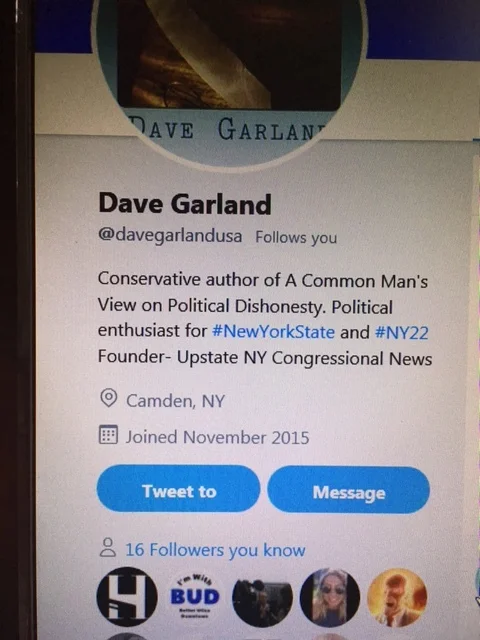Should Principled Conservatives Join the Democrats? By Austen Givens
David A. Smith, a senior lecturer in history at Baylor University, uses the vivid image of a cheap, flimsy plastic bag to describe political parties in the United States. In Smith’s view, our parties are simply vessels to carry forward and implement ideas about governance. But, like objects in flimsy plastic shopping bags, ideas can be removed from our political parties. Our parties can be re-filled with new and different ideas. And parties themselves can, at times, be discarded.
Smith’s observations resonate for a group that I will refer to here as “principled conservatives.” These principled conservatives are a heterogeneous bunch. They are the people who, back in the pre-Trump years, embraced a mixture of social conservatism, fiscal restraint, and robust national defense—the so-called “three-legged stool” that Ronald Reagan believed was central to the Republican Party’s electoral success during his tenure.
In addition, principled conservatives rally around a set of core values that defy easy categorization. For instance, some of these include a premium on the value of education and intellectual achievement, traditional family structures and stability, an internationalist outlook, American exceptionalism, the view that immigration is a net good for the United States; hard work, honesty, integrity, loyalty, equality, and liberty; and an abiding respect for and deference to the rights and principles enshrined in the U.S. Constitution. Principled conservatives are students of history, and look to the past to provide insights into the present and future. Yet they are deeply interested in both Jerusalem (i.e. religion) and Athens (i.e. secular wisdom and philosophy). To varying degrees, the presidencies of Ronald Reagan, George H.W. Bush, and George W. Bush comported with principled conservatives’ views. These views, in turn, were reflected in successive GOP platforms.
Enter Donald Trump.
Trump’s presidency has been constructed around a set of norms and values radically at odds with those of principled conservatives. To the chagrin of many principled conservatives, Republican leaders at all levels of government have lined up behind Trump, regardless of his outlandish statements, crude insults, and whimsical policy pronouncements.
Principled conservatives now find themselves politically adrift: rejected by a GOP that has embraced Trump’s populism and lukewarm on the prospect of remaining independents.
So, why should this group of voters consider joining the Democrats?
On many core issues, principled conservatives will find common ground with Democrats. This common ground can provide the foundation upon which principled conservatives remain politically relevant. It is important to remember that the Democratic Party is remarkably diverse—the same party that embraced Sen. Bernie Sanders (I-VT), a self-proclaimed “democratic socialist,” is also home to Sen. Bob Menendez (D-NJ), one of the most vocal Iran hawks in Congress. An incomplete list of points of potential alignment between principled conservatives and Democrats could include:
Education and intellectual achievement—The Democrats count a huge segment of educators and intellectuals among their ranks. Books and ideas matter to Democrats.
Traditional family structures and stability—While some Democrats and principled conservatives may not see eye-to-eye on issues like abortion and gay marriage, there is little doubt that both groups agree that safe, stable communities made up of safe, stable households make society better. That is a start.
Liberty, equality, respect for others—Democrats’ emphasis on social justice issues means that there is some common ground here for principled conservatives.
Internationalist outlook—Democrats are now the internationalist party, especially in light of former President Obama’s use of multi-lateral military coalitions, embrace of vigorous diplomacy, and advocacy for trade deals like the now-defunct Trans-Pacific Partnership; and Trump’s wariness of foreign military engagements and global trade deals.
Strong national defense—Former President Obama’s foreign policy and national security positions were in large measure a continuation of those pursued in the George W. Bush administration. To be sure, there is a large contingent of national security “doves” in the Democratic Party. But it is worth pointing out that among foreign policy professionals in Republican and Democratic administrations, there is relatively little separation on key questions, such as whether North Korea should be permitted to develop nuclear weapons (answer: no) or if instability in Syria threatens U.S. interests abroad (answer: yes).
Many Democrats will be wary of principled conservatives who express a desire to join them. Some of that suspicion is probably warranted. Yet it is also worth considering how principled conservatives could benefit Democrats at the ballot box. By embracing principled conservatives, Democrats stand to peel off a sizable group of longtime Republicans who are committed to ideas like honesty, integrity, liberty, equality, openness, and fairness. Voters with these qualities, regardless of their past party affiliation, would seem to be a natural fit in today’s Democratic Party.
Moreover, Democrats should remember that because principled conservatives come from the Republican Party, they will bring with them a formidable level of familiarity with Republican arguments. This means that they will be well-positioned to support Democratic positions and argue for Republican support of Democratic proposals.
After taking a beating in the 2016 elections, Democrats are looking to rebuild their party. As the 2018 midterm elections approach, they could do worse than embracing principled conservatives who find themselves no longer welcome in the GOP.
Austen D. Givens is Assistant Professor of Cybersecurity at Utica College.





